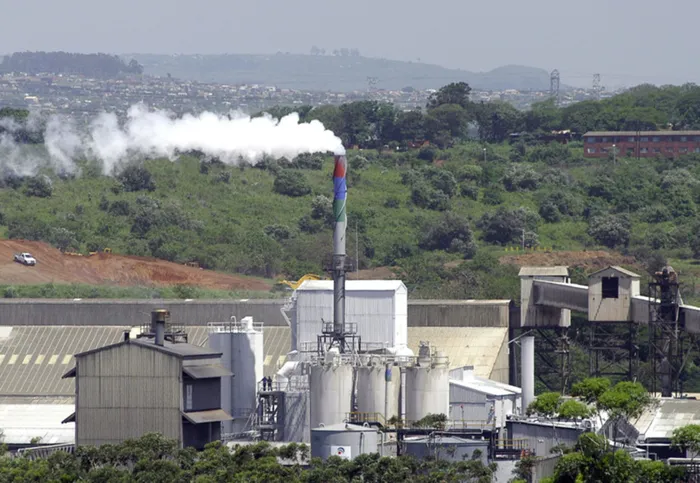Kagiso Tiso and trusts to get 27.4% of AECI in BEE deal

Somerset West. AECI yesterday elevated Kagiso Tiso, the black economic empowerment (BEE) partner in its mining explosives subsidiary, to a shareholder of the holding company, and introduced employee and community share trusts in a 10-year deal valued at R1.2 billion. .Photo supplied 1 Somerset West. AECI yesterday elevated Kagiso Tiso, the black economic empowerment (BEE) partner in its mining explosives subsidiary, to a shareholder of the holding company, and introduced employee and community share trusts in a 10-year deal valued at R1.2 billion. .Photo supplied 1
Ingi Salgado
AECI yesterday elevated Kagiso Tiso, the black economic empowerment (BEE) partner in its mining explosives subsidiary, to a shareholder of the holding company, and introduced employee and community share trusts in a 10-year deal valued at R1.2 billion.
AECI shares shed 2.4 percent to R82.50 yesterday, a reaction both to the earnings dilution arising from the greater number of shares in issue after the deal, and weaker-than-expected first-half earnings.
AECI simultaneously released financial results in which headline earnings for the six months to June rose 11 percent to R284 million, hurt by a R40m tax provision, following a recent court ruling on tax treatment of the proceeds of land sales.
Under the BEE deal, Kagiso Tiso’s 25.1 percent shareholding in mining explosives subsidiary AEL will be converted to a 4.18 percent holding in AECI.
A share trust for permanent employees will acquire an 8 percent shareholding and another 3.5 percent is reserved for the AECI Community Development and Education Trust, focused on improving science education and uplifting black communities near AECI plants.
Participants will have full voting and economic rights.
Their combined shareholding will translate into an effective 27.4 percent broad-based BEE equity ownership of AECI, excluding foreign operations and mandated investments, as defined in the Department of Trade and Industry’s codes of good practice.
AECI said no external funding would be required but it put the economic cost of the staff and community component of the BEE transaction at about R348m, which it would take through the income statement starting in the current financial year, as the deal would become effective before year-end.
Shoaib Vayej, a portfolio manager at Sanlam Investment Management, said the economic effect of the employee and community share trusts was in line with precedents for BEE deals. He was pleased AECI had “not been prescriptive” with respect to dividend policy for the employee share trust – some schemes paid trickle dividends, while others pledged dividends without taking cognisance of economic conditions.
AECI’s operational performance in the first half was helped by a 10 percent rise in revenue to nearly R6bn, but hurt by the tax provision after the Supreme Court of Appeal ruled in favour of the SA Revenue Service over whether the proceeds of land sales at Founders Hill should be treated as capital or revenue.
The company said yesterday that it had requested leave to appeal the decision from the Constitutional Court, but had nevertheless provided R40m for all taxes assessed in respect of three other subsidiaries “that have tax issues similar to those of Founders Hill”.